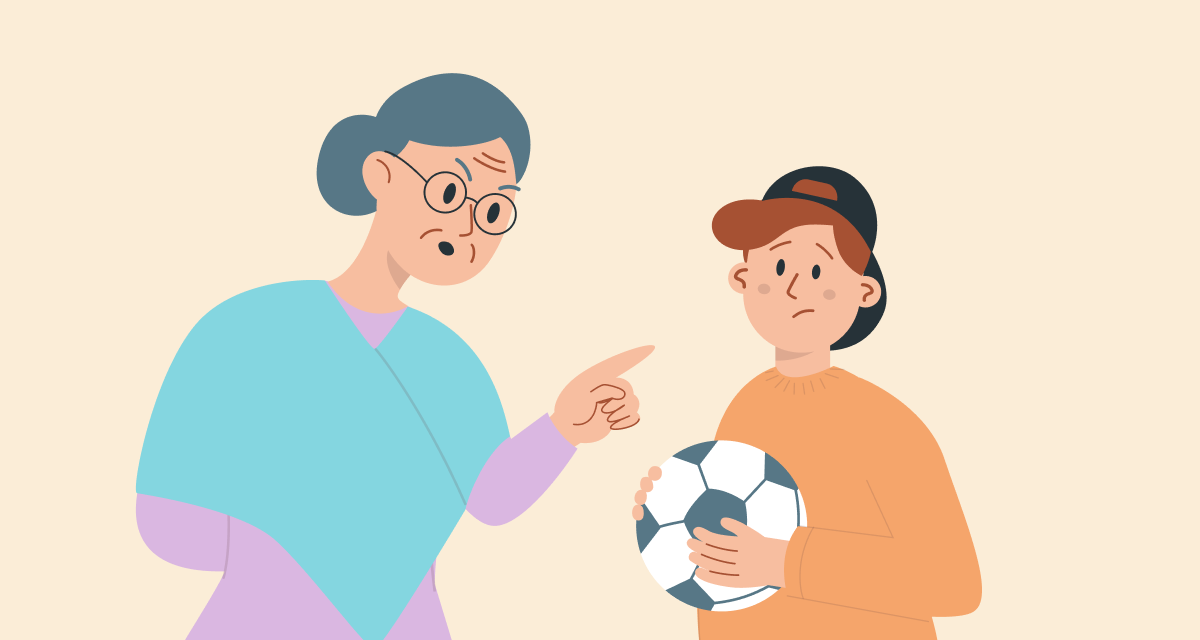When Others Try to “Parent” Your Child

It can sting when another adult—a relative, a friend, or even a stranger—decides to “teach your child a lesson.”
Those comments often sound like a criticism of you, and they can make your child feel unsafe or confused about who’s really on their side.
Let’s look at how to protect both yourself and your child in moments like these.
What Your Child Feels When Someone Else Corrects Them
If someone says sharply, “You are not well-behaved” or “That’s not how kids should act!”, a child might freeze, shut down, or feel ashamed.
The hardest part? They may feel like their parents didn’t step in to protect them.
Even when adults think they’re being helpful, it’s important to remember: every child deserves respect and emotional safety.
In that moment, start by responding to your child’s feelings. You might say, “I can see that bothered you. I’m right here.” Once your child feels safe, you can calmly talk to the adult who stepped in.
Why Other Adults Interfere
Usually, they mean well—at least, they think they do. Some people want to share their “wisdom,” others are annoyed, or simply believe they have the right to say something.
Relatives might think, “I’m a parent too, I can say it.” But every family has its own rules and rhythms. What seems right to one person may feel completely wrong to another. That’s why setting clear boundaries—politely but firmly—is so important.
How to Set Boundaries Calmly but Clearly
If someone tries to discipline your child in front of you, don’t stay silent. It can hurt your child’s trust in you if you don’t step in.
- First, show your child you’ve got their back. If someone scolds them, simply move closer and say, “Thanks, I’ll take care of it,” or “Please don’t correct them—I’m right here and I see what’s happening.”
- Keep your voice calm and respectful: “I understand you want to help, but we handle things differently,” or “I appreciate your opinion, but our family has other rules.”
- Avoid getting into arguments. You can end the conversation with, “I’ll think about it, thank you,” and leave it at that.
- If the comments keep coming or sound disrespectful, it’s okay to be firmer: “Please don’t speak to my child that way. If something concerns you, talk to me directly.”
- How to Talk to Your Child Afterward
If your child is upset, reassure them: “That was a tough moment. I’ll help you figure it out.”
Let them know they can always count on you: “I’m here for you. If someone says something unkind, it’s not your fault. They just don’t know how to speak kindly.”
Remind your child that all feelings are valid—anger, embarrassment, sadness. When you talk through those feelings together, you help your child learn that emotional safety comes from love and trust, not from being “perfect.”
⠀
By standing up for your child, you’re showing what truly matters in your family—respect, care, and connection. And that lesson will stay with them far longer than any stranger’s advice.
References:
- 14 conflict-free ways to handle unwanted parenting advice, Motherly, 2025
- No one wants to receive unsolicited parenting advice. But there’s one effective way to handle a child’s big emotions, The Guardian, 2024
- Receiving Unsolicited Parenting Advice?, Connected Families, 2021
Проверьте электронный ящик



















